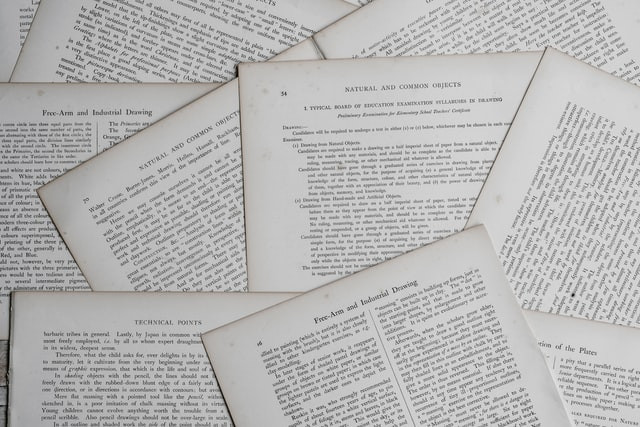How To Write a Reaction Paper

Why a Strong Thesis Statement Can Make or Break an Essay
August 23, 2025The skill of writing a reaction paper is essential as it allows you to express your thoughts on what you have read, what you have seen or experienced. A summary is different because you are analyzing and reflecting on the material. A simple guide to writing a reaction paper.
Understand the Assignment
First of all, you understand what your professor is expecting. Your opinion and analysis on the content of a given text is what a reaction paper demands. It should not be a summary, but a thought. Determine if you would want to focus on some specific areas like themes, characters, or arguments.
Carefully read or watch the material.
The first thing you need for writing a reaction paper is how you know the material well. Read it carefully (a book, article, movie or a lecture). Take notes as you go. Put down the words you can and outline why in the mind of the woman you’re writing about. It will also aid in reflecting.
Identify the Main Idea
The main idea or theme of the material that you are reading should be revealed in your reaction paper. What is the purpose of the author or creator behind the piece of work? What is their message, argument? The understanding the main idea will help you structure your paper and organize ideas.
Focus on Your Reaction
The purpose of this paper is your opinion. Contemplate on what mood the material effortlessly made you feeling. Did it alter your belief or altogether make you think in a new manner? Was it interesting, disinteresting, confusing, interesting, or exciting? Be honest about your feelings.
Analyze the Material
Then you have to analyze the material, in addition to your reaction by assignment help london. Try to ascertain why you feel this way. For example, take a character’s actions and tell why they surprised you. How reliable was an argument seen as convincing for? Look at what the creator was trying to say in the ways that there was writing style, visuals or structure, and how those made you feel.
Organize Your Paper
Usually, a reaction paper involves a simple structure. It has body, introduction and conclusion. The first way to organize is as such:
Introduction
Begin by introducing the material that you are chemically interacting with. Among other things, give the title, author, and publish date. Continue by stating one sentence about your main reaction or opinion. That is giving the reader a clue of where you stand based on the statement.
Body
That is where you will explain and analyze your reaction in your body of your paper. Brainstorm your thoughts; divide them into clear paragraphs. Your reaction about the incident should contain one aspect of it in each paragraph. For instance, you can talk about the positive sides of the material in one paragraph and the negative aspects of it in another.
Support Your Opinion: Refer to the material for examples of your reaction. For reacting to a book, mention how you reacted to specific scenes you read. If it’s a movie, refer to exclusive, key moments or characters.
Tell Them HOW you felt: Just saying you enjoyed something will not give them enough idea of what you meant. Give a reason as to why you think that. This will help demonstrate how deep your analysis is.
Conclusion
In the last part of your work, complete a short summary of the main points. Rewrite your response in a fresh manner and provide your general impression of the material. Close with a last thought or question which prompts the reader to think. It can for instance be on how the material changes your view or what you read about here.
Use Clear and Simple Language
Your reaction paper must be written in a clear and simple language. The goal would be your thoughts to say, rather than using complicated words or phrases. Short sentences help your ideas to be understood easily. Use active voice to learn how to stick to the written version.
Avoid Repetition
Bear in mind not to key repeat. There should be new ideas or arguments in each paragraph. The second is to elaborate more on a point, if you are repeating yourself, try to expand that a bit more in detail or some sort of analysis. It maintains the interest of your writing.
Proofread Your Paper
After you have written your reaction paper, read it thoroughly. Look through to ensure spelling or grammar mistakes. Ensure that your sentences are simply intended precisely what the word greatly suggests. A well written paper impression is more likely to make a positive impression on the reader.
Follow Formatting Guidelines
Always follow the formatting rules that your instructor may provide. Font size, margins and citation style are some things that can be included in this. That’s why if your paper demands citations, you should credit the author or creator properly. If you follow these guidelines, it’s clear that you are a decent organized person and don’t take your work lightly.
Final Thoughts
Summarizing the material in a reaction paper is not all that writing one is about. Actually, it is all about what you are thinking and the way you feel about something expressed in the form of sentences. and writing clearly, you can write a good reaction paper: by knowing the material, you are going to organize your thoughts. Always support your opinions with examples, analysis, reasoning and support material. Proofread your work, keep your sentences short, simple and direct and submit your work.
This will help you to write a reaction paper in which the thinking is well articulated to the reader.




